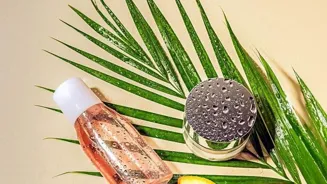Unveil the Secrets to Glowing Skin: Avoid 10 Common Skincare Mistakes! Dive into expert advice for radiant, healthy skin
In the pursuit of healthy, radiant skin, many folks inadvertently commit skincare
blunders that can hinder their progress. With the beauty industry overflowing with products and advice, it's easy to get lost in the maze. But fret not!
We’re here to shed light on ten common skincare mistakes and simple solutions to achieve that coveted glow.
Over-Exfoliating: Scrubbing Away Your Skin's Natural Barrier
Many are under the impression that constant scrubbing and exfoliation will reveal smooth, glowing skin. However, excessive exfoliation can strip away the skin's natural oils, leading to dryness, irritation, and even sensitivity. Now, who would want that, right?
Over-exfoliating throws the skin's pH balance off the rails, making it more prone to breakouts and inflammation. Imagine your skin's barrier as a protective shield – too much scrubbing weakens it, leaving your skin vulnerable to environmental aggressors.
To add to that, harsh scrubs containing large, abrasive particles can cause micro-tears on the skin's surface, leading to redness and potential damage. Signs of over-exfoliation include redness, tightness, flakiness, and increased sensitivity to products you usually use with ease.
So, how to find that sweet spot? Remember, your skin is a delicate ecosystem, not a kitchen sink that needs vigorous cleaning! Listen to what your skin is telling you. If you see any of these signs, take a break from exfoliating.
The solution is simple: limit exfoliation to once or twice a week, depending on your skin type. If you have sensitive skin, start with once a week and see how your skin reacts.
Opt for gentle exfoliants, such as chemical exfoliants like AHAs (alpha hydroxy acids) or BHAs (beta hydroxy acids), instead of harsh physical scrubs.
AHAs work on the surface to slough off dead skin cells, while BHAs penetrate deeper to unclog pores – perfect for those with oily or acne-prone skin. And when you do exfoliate, be gentle! Use light, circular motions and avoid applying too much pressure.
After exfoliating, hydrate your skin with a nourishing moisturizer to replenish its moisture barrier. Think of it as giving your skin a much-needed hug after a workout!
Not Using Sunscreen: The Cardinal Sin of Skincare
Skipping sunscreen is like stepping out into the midday sun without an umbrella! It's a big no-no. Sunscreen is hands down the most important product in your skincare regime, regardless of how sunny the day is. Harmful UV rays can penetrate clouds and cause damage even on overcast days.

Think premature aging, wrinkles, sunspots, and, worst of all, an increased risk of skin cancer. Many people think they only need sunscreen when they are holidaying on a beach. In fact, daily exposure to sun can cause damage. Even sitting near a window while working can be harmful.
A broad-spectrum sunscreen with an SPF of 30 or higher should be your daily companion. Think of it as your skin's best friend. Ensure it protects against both UVA and UVB rays. Apply sunscreen generously to all exposed areas of skin, including your face, neck, ears, and hands, even on cloudy days.
Remember to reapply every two hours, especially if you are swimming or sweating. Now, many people complain about sunscreen feeling heavy or greasy. The good news is that there are plenty of lightweight, non-comedogenic sunscreens available in the market these days.
Experiment and find one that suits your skin type and preferences. Make sunscreen application a habit, just like brushing your teeth. Integrate it into your morning routine so you don't forget. Remember, prevention is always better than cure.
Protect your skin from the sun's harmful rays, and your future self will thank you.
Picking and Popping Pimples: A Recipe for Scars and Infections
The temptation to squeeze a pimple can be overwhelming, especially when it's staring right back at you. But resist the urge! Picking and popping pimples is a one-way ticket to inflammation, scarring, and even infection.
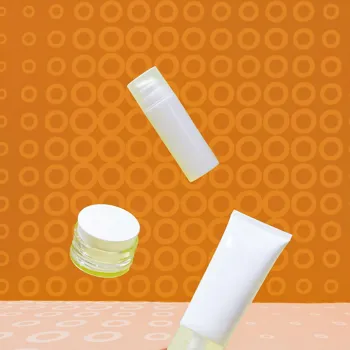
When you squeeze a pimple, you're essentially forcing the contents deeper into the skin, leading to more inflammation and redness. This can damage the surrounding tissue and result in stubborn scars that last long even after the pimple is gone.
Furthermore, popping pimples with dirty fingers can introduce bacteria into the wound, increasing the risk of infection. Imagine popping a balloon filled with bacteria under the skin. Not a pretty picture, is it?
Instead of picking and popping, try spot treatments containing benzoyl peroxide or salicylic acid that helps dry out the pimple and reduce inflammation.
Hydrocolloid bandages can also work wonders by absorbing excess fluid and protecting the pimple from further irritation.
If you have a pimple that's particularly stubborn or painful, consult a dermatologist. They can safely extract the pimple with minimal damage to the skin. Remember, patience is key when it comes to dealing with pimples. Avoid touching your face unnecessarily to prevent the spread of bacteria.
Focus on maintaining a good skincare routine with gentle cleansers, exfoliants, and moisturizers to keep your skin healthy and prevent future breakouts.
Using the Wrong Products for Your Skin Type: One Size Does Not Fit All
Your skin is unique, and what works for your friend might not work for you. Using the wrong products for your skin type can lead to a host of problems, like dryness, oiliness, breakouts and irritation.
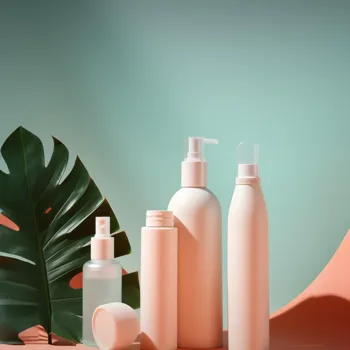
Understanding your skin type—whether it's oily, dry, combination or sensitive is crucial for choosing the right skincare products. Oily skin needs lightweight, oil-free products that won't clog pores. Dry skin needs rich, hydrating products that will replenish moisture.
Combination skin needs a balance of both. For sensitive skin, look for gentle, fragrance-free products that minimize irritation. Before purchasing any new product, do a patch test to see how your skin reacts.
Simply apply a small amount of the product to a discreet area, such as behind your ear, and wait 24-48 hours to see if any irritation occurs. Don't fall for the hype.
Read product labels carefully and pay attention to the ingredients.
Look for products that are specifically formulated for your skin type and address your specific concerns. Consider consulting a dermatologist or esthetician. A skin expert can assess your skin type and recommend a customized skincare routine tailored to your individual necessities.
Remember, skincare is not a one-size-fits-all solution. Take the time to understand your skin and choose products that will nourish and protect it. Your skin is worth the investment!
Neglecting Your Neck: The Forgotten Zone
The neck is an often-overlooked area in skincare routines, yet it's one of the first places to show signs of aging. The skin on your neck is thinner and more delicate than the skin on your face, making it more susceptible to wrinkles and sagging.
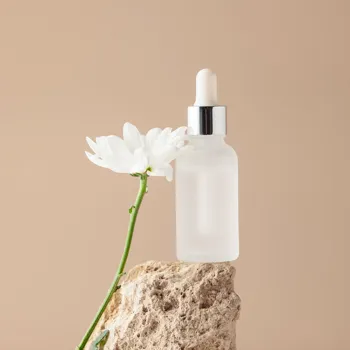
Extend your face skincare routine down to your neck and décolletage (the upper chest area). Use the same cleansers, serums, and moisturizers that you use on your face. Gently massage the products into your skin using upward strokes.
Incorporate a neck cream with ingredients like retinol or peptides to improve skin elasticity and reduce the appearance of wrinkles. These ingredients helps stimulate collagen production. Sunlight can cause the neck skin to become damaged just like the face.
Don't forget to apply sunscreen to your neck every day, just like you do on your face. Protect it from harmful UV rays that can cause premature aging. Poor posture and prolonged screen time can contribute to neck wrinkles.
Be mindful of your posture, take breaks to stretch your neck, and avoid looking down at your phone for extended periods. Remember, your neck deserves as much love and attention as your face! Treat it with the same care and you'll be rewarded with a smoother, more youthful-looking neckline.
Using Dirty Makeup Brushes: A Breeding Ground for Bacteria
Your makeup brushes are your trusty tools for creating flawless looks, but they can also be a breeding ground for bacteria, dirt, and oil. Using dirty makeup brushes can cause breakouts, skin irritation, and even infections. Make it a habit to clean your makeup brushes regularly.
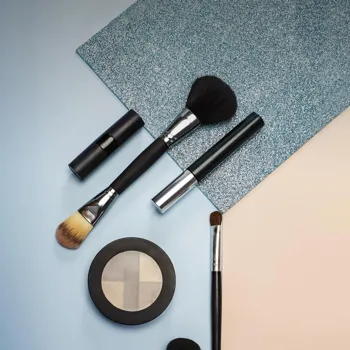
Aim to clean them at least once a week or more often if you use them frequently. You can use a mild soap or a specialized brush cleanser. Swirl the brushes in the cleanser, rinse them thoroughly, and lay them flat to dry. Avoid putting them upright as it may weaken the roots of the brushes.
Dirty brushes can trap old makeup, dirt, and oil, which can clog pores and cause breakouts. Cleaning your brushes effectively can help prevent acne and maintain clear, healthy skin.
Freshly cleaned brushes provide a smoother and more even application of makeup.
This results in a more natural, flawless finish. Regularly cleaning your brushes can extend their lifespan and prevent them from shedding or breaking. Invest in quality makeup brushes and take good care of them to enjoy years of use.
Imagine using the same brush over and over without cleaning it which will be akin to applying dirt on your face! Your skin will thank you for keeping your makeup brushes clean and hygienic.
AI Generated Content. Glance/InMobi shall have no liability for the content